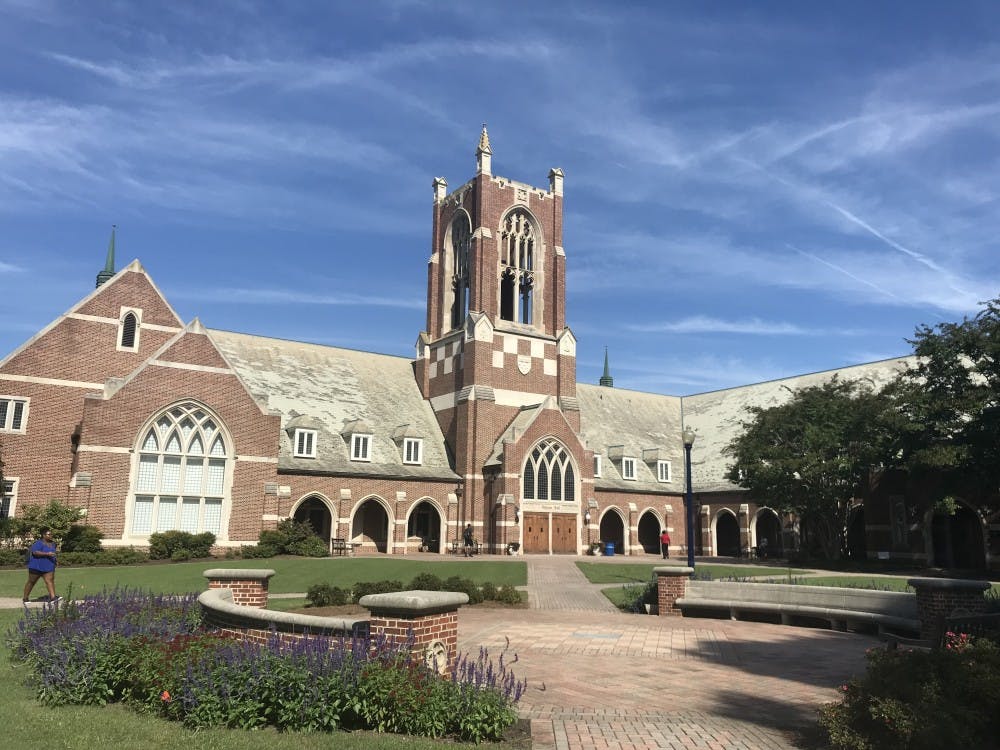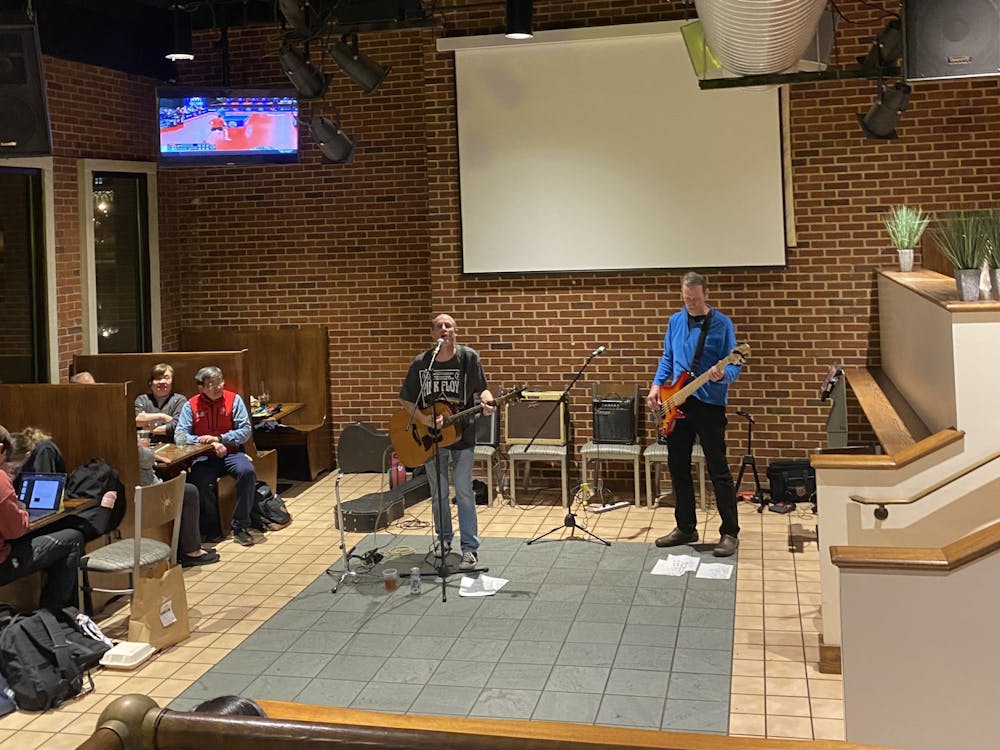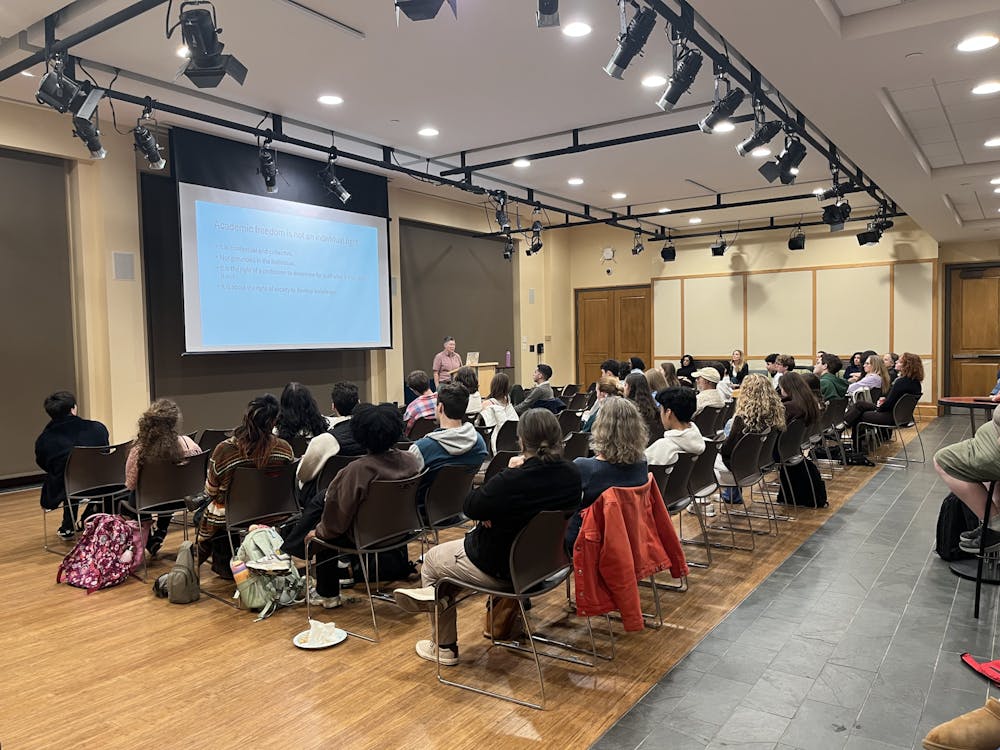Invaluable friendships, a professor’s sword fight with a student and the global influences on American math education are all topics explored on the American Mathematics website.
The content for the site was created by students in Explorations in American Mathematics during the fall 2018 semester. Della Dumbaugh, professor of mathematics and mathematics program coordinator, said she had gotten the inspiration for the website after speaking for 15 summers at Carleton Summer Mathematics Program for Women, the longest program of its kind.
“One of the aims of that program in the summer was to reach women who were at smaller schools and show them about more sophisticated mathematics that they couldn’t necessarily get at their institution. And also introduce them to women in the field,” Dumbaugh said.
From this experience, Dumbaugh realized that many schools do not have the resources to teach a class on the history of American mathematics, she said. According to the Carleton Summer Mathematics Program for Women Undergraduates website, the program no longer runs because of lack of funding.
A goal of the course’s project is to act as a resource for students to learn about the history of American mathematics and serve smaller schools that do not have the bandwidth of faculty to teach a class specializing in that area, Dumbaugh said.
Dumbaugh said all the students in the course were hardworking, committed and passionate. The demanding course involved students working in teams studying a specific topic in mathematics. Then, each student created installments, or smaller sections of a research paper, to present to the class every week, Dumbaugh said.
These topics are now headings on the website and include themes such as Women in Mathematics, International Alliances and Funding for Mathematics.
Dumbaugh could not emphasize enough what a collaborative effort the website was, across campus and among students in class.
Mark Nichols, academic computing services manager in the Technology Learning Center, also works as one of the administrators for the Aeronautical Reconnaissance Coverage Geographic Information System. He helped the students use the ArcGIS software for their website data.
Nichols said he had enjoyed working with Dumbaugh and the students.
“It was a great idea, a really interesting topic and a great collaboration between Della and her students and the technology of ArcGIS online,” Nichols said.
Dumbaugh asked junior Basel Arafat if he would help with some technical aspects last spring before the course began.
Enjoy what you're reading?
Signup for our newsletter
Arafat said he had acted as a technical adviser and had helped students and Dumbaugh navigate the practical aspects of building the website.
Dumbaugh said that when she had asked Arafat to help out with the course, he had no idea what he was going into, but he had ended up being everyone’s “go-to guy,” making him an integral member of the class.
“Dr. Dumbaugh is the kind of person who basically supports you along the way,” Arafat said. “She always finds time to support her students.”
Once the course was over in December, and the student research projects were completed, Arafat voluntarily continued to work with Dumbaugh to create the website and post the projects for public viewing, Arafat said. Dumbaugh said the website had officially launched on Feb. 8.
At times, the uncertainty of the track of the course was uncomfortable because Arafat had the class of 23 students and Dumbaugh relying on him, and he had been determined not to disappoint them, Arafat said.
The course syllabus Dumbaugh created was quickly altered when Dumbaugh and her students realized that the course of action dictated in the syllabus was not working as they had imagined. They tried multiple softwares, altered the structure of the semester and dealt with many other trial-and-error situations, Dumbaugh said.
“We changed the syllabus all the time, so flexibility was a key to success in the class,” Dumbaugh said. “So every student in that class is flexible, or learned to be."
Senior Smaragda Spyrou said she was still friends with her group members from the course.
“In my four years here and in high school, I’ve never had a team that I both liked and we all worked the same amount,” Spyrou said.
Spyrou said she planned on using her research paper from the course as a writing sample for graduate school or job applications.
Spyrou and her group members were responsible for the “Towering Figures” tab on the website, originally entitled “Power Players.” When David Zitarelli, a celebrated mathematics historian, died before their project was posted to the site, Dumbaugh asked Spyrou’s group if they would consider renaming their section “Towering Figures,” the title of a paper he wrote, in order to honor Zitarelli.
“They have a little memorial on their page to David Zitarelli,” Dumbaugh said through tears, “so I’m touched by that.”
Dumbaugh said the multi-media creation and presentations had brought a different kind of thinking to the students who were mostly math majors or minors.
Contact contributor Margaux Natiello at margaux.natiello@richmond.edu.
Support independent student media
You can make a tax-deductible donation by clicking the button below, which takes you to our secure PayPal account. The page is set up to receive contributions in whatever amount you designate. We look forward to using the money we raise to further our mission of providing honest and accurate information to students, faculty, staff, alumni and others in the general public.
Donate Now



